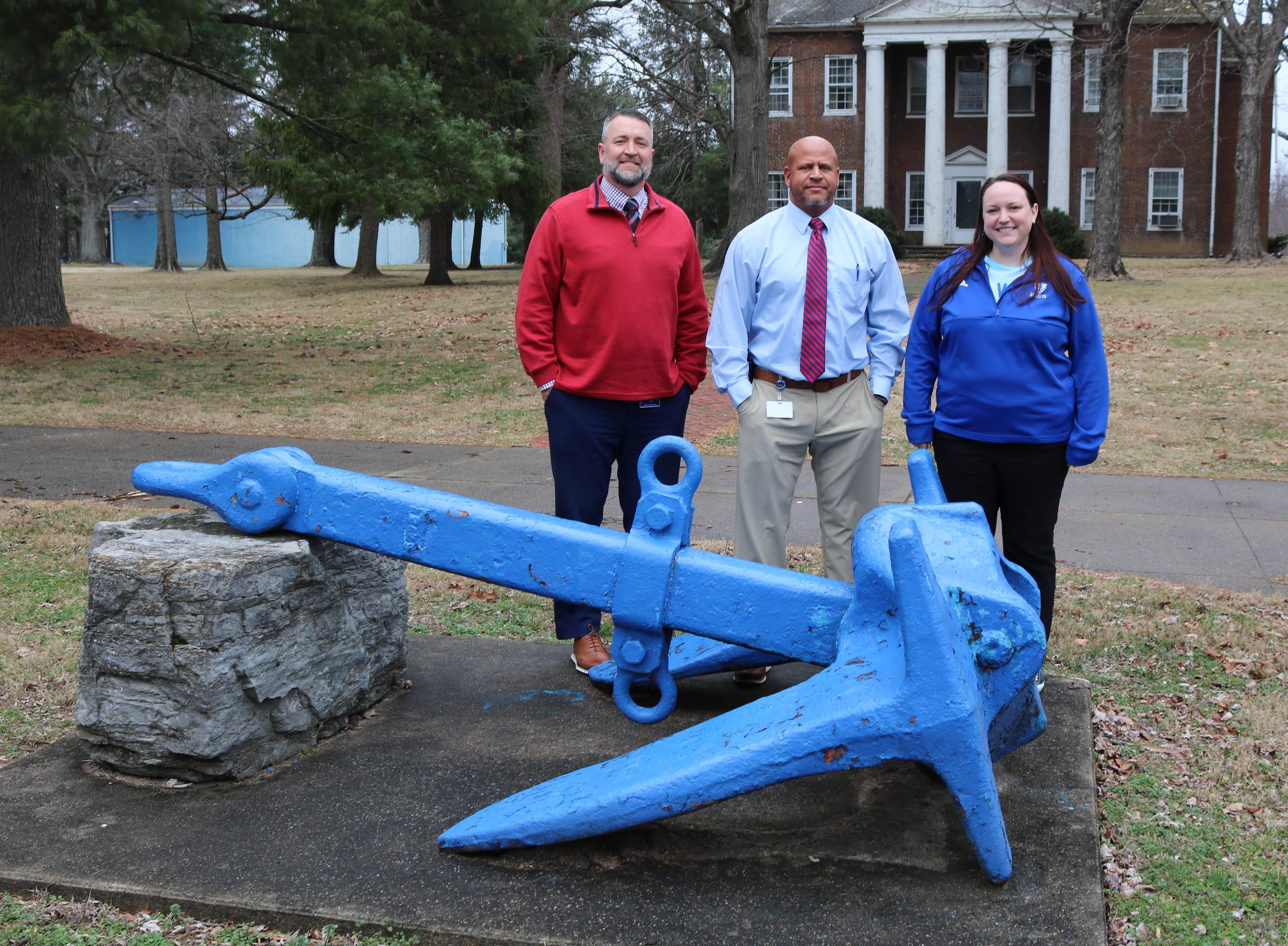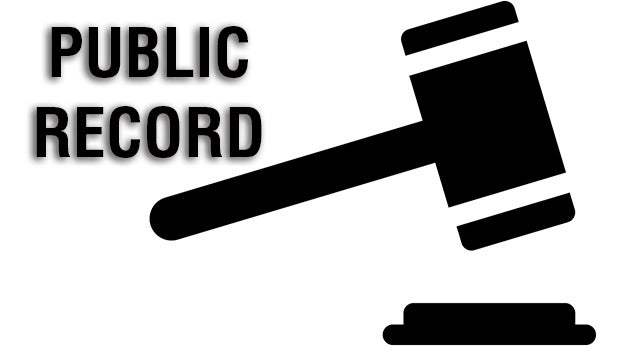DHS unveils new strategic vision; Program designed to help students compete after high school
Published 6:18 am Tuesday, January 17, 2023

- From left, Danville High School Principal Chad Luhman, Assistant Principal Tomma Huguely and Secondary Instruction Specialist Shelby Cameron are enthused by the school’s newly unveiled strategic plan. Photo by Lance Gaither
BY LANCE GAITHER
lance.gaither@bluegrassnewsmedia.com
During the past six months, staff at Danville High School have been working on creating a new strategic vision for the school. The plan is broken down in four main aspects: student advocacy, executive function, coaching and feedback, and adaptive culture.
“We are strategically approaching everything we have to do to challenge our students and meet their needs while expanding their horizons,” said Principal Chad Luhman. “We started to talk about the process of what we need and putting our plans on paper. We came up with these four areas of growth. If we dedicate our resources to these areas, it will make Danville the best school it can possibly be.”
Student advocacy focuses on leadership skills, dual enrollment, and communication between students and staff.
“We wanted to teach leadership skills and the ability for students to advocate for themselves and have a voice in what is being taught,” Luhman said. “Our first goal was restarting the student council and giving it a strong foundation. We have had the Admiral Leadership Academy over the summer for two years now. Those students come back and give back to the school.”
The student advocacy aspect of the strategic plan further focuses on developing leadership skills and communication with student surveys, student led classes, and encouragement for dual enrollment classes by offering remote courses from the University of Kentucky and vocational programs with the Bluegrass Community Technical College.
Executive functioning focuses on the growth of the brain, decision making, critical thinking and mental health.
“We are restarting our Danville Diploma competencies that was put on hold by the pandemic,” said Luhman “Their senior year they will work on capstone presentations, which will determine if they are at the level of learning we want them to be when they leave the school. On Wednesday, we have social and emotional learning lessons. We know that class will meet the needs of about 80 percent of our students. They will learn about things like interacting with peers, digital literacy, dealing with depression and facing challenges and conflict.”
Assistant Principal Tomma Huguely has worked to create mentoring programs for the students that need more attention. Students are placed into different tiers based on their needs.
“The majority of our students are Tier 1, if you just give them the lesson, they will be fine,” Huguely said. “Tier 2 needs more support. They will be placed in smaller classes so they can get that support, it’s both academically and socially. Tier 3 would need more frequent or intense individual support.”
To further improve on executive functioning, data will be collected to monitor trends of student performance, behavior correction will focus on self-accountability and empathy, and students will be given personalized curriculum based on their passions.
“We have four students in an aerospace program and two of them are solo fliers. We had a kid who flew Danville to Richmond and he doesn’t have a driver’s license,” Luhman said. “That’s an important part of how we try to guide students and fit their schedule. We still offer AP classes so students can be challenged by college level material. That is why dual credit is very important to us.”
The school has started using a college- and career-readiness program called Xello.
“Students log their experiences as they go,” said Secondary Instruction Specialist Shelby Cameron “They log any community service or leadership opportunities and it automatically builds a resume template for them. Every one of our students already has a resume made. Were want every student to leave with artifacts that are beneficial in their careers or college experiences. They use Xello from sixth grade on. It builds on the experiences they have already had and helps to know who they are and how to help before they ever step through the door. Us being a small school gives us the benefit of being able to individualize student experiences. Students can come to us with a goal and we can find them a dual credit opportunity or internship that will that would give them that opportunity. We can open more doors that may not be available in other places.”
Coaching and feedback focuses on improving teaching methods.
“We have 3 individualized learning pathways for our teachers,” said Cameron. “We are changing to master based grading next year. It holds students accountable for knowledge they are supposed to have. We are focusing on what are students are supposed to know. The other path is deep learning. Deep learning focuses on having authentic and real-world experiences that go deeper than what you would typically get in a classroom setting like real world projects or dual credit. We are working very hard on getting the students engaged with the school and involved in the material. Teachers are working to combine efforts to show how what they are learning can be used in different situations.”
The school has increased its focus on co-teaching models.
“We have invested a lot resources and capital into co-teaching,” said Luhman “It is high-leverage practices we want to increase by having our special ed department and content experts working together for co-teaching opportunists. We want to find the practices that allow these groups to plan together and be effective in the classroom.”
The final element is creating an adaptive culture in the school.
“We are trying to change how we think and feel about other people,” said Huguely “Part of that is based around celebrating things we have done well. That doesn’t mean we ignore areas we need to grow in. But we want to celebrate our kids, we have created schedules to ensure that we did. Even the way we teach, it goes back to our cross curriculum to provide authentic learning, engagement, and a feeling of success. School is school, we still have the normal stuff, but we are going to talk about things we can change and practices we need to use.”
The school is giving teachers time to collaborate on instruction in the classroom.
“We have half days where teachers work at CentreWorks so they can make the best use of the time that they have,” said Cameron. “They have goals that will build up their department. For example, math is looking at algebra foundational skills and ACT prep. Every time we have those half days, we are looking at data, talking about students, and how we can improve. We are confident that the data work we are doing can support the growth we would like to see. It only does so much for us to look at data, our teachers have to be in it, our students have to understand. There has to be transparency for where we are at and where we need to be.”
The school is developing new freshman readiness metrics.
“When students transition from eighth grade to their freshman year, we want to know where our students are,” said Luhman “If we see students below where they need to be, we want to find areas of growth and achievement gaps so we can know where to invest so they are ready for dual credit when they are juniors and seniors. As we worked through all this over the summer, we came up with the mantra cultivate potential, empower students, and inspire excellence. Those 6 words define our goals and mindset.”
Luhman wanted to create a new strategic plan to bring the school together.
“In this plan we had a lot of department leads, veteran teachers, and new teachers,” Luhman said. “We knew this was the best way to improve our school. We value this time together to combine everyone’s experiences, intelligence, and expertise to make us the best we can be.”
Although many aspects of the strategic vision have already been implemented already, Luhman expects the plan to be fully in place within five years.





